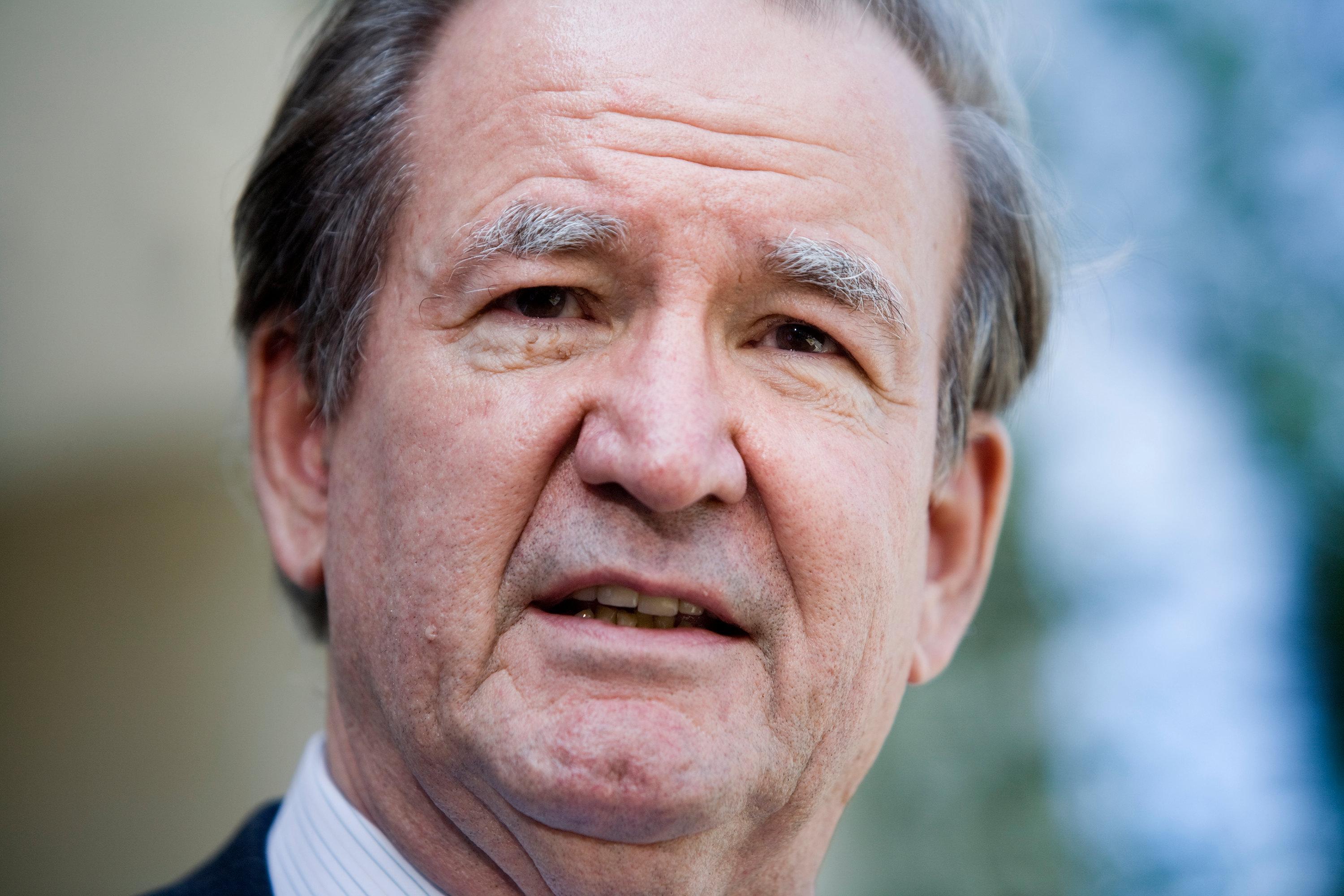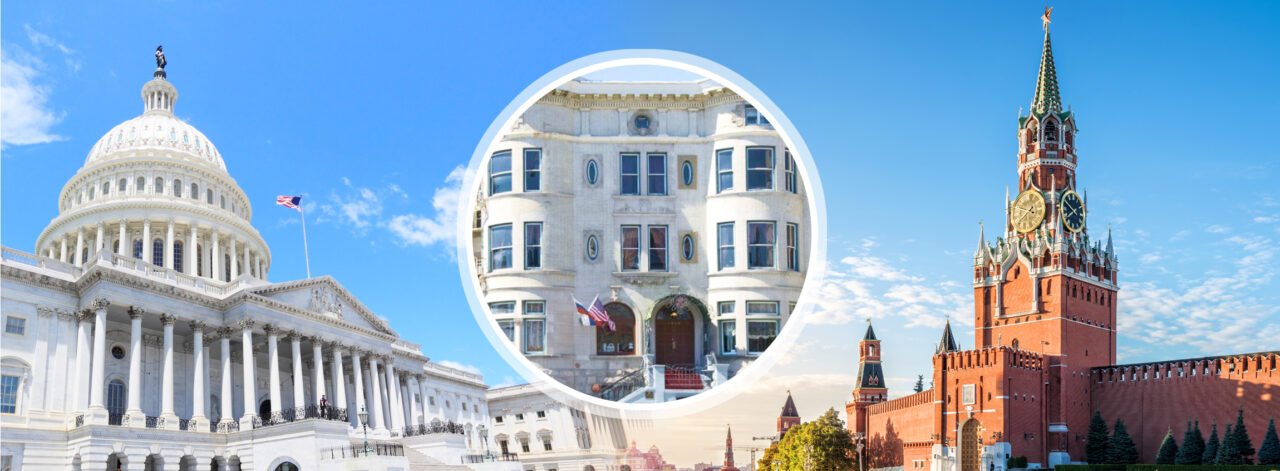
Patrick J. Buchanan
Patrick J. Buchanan is an American conservative political commentator, author, syndicated columnist, politician, and broadcaster
 In retaliation for the hacking of John Podesta and the DNC, Barack Obama expelled 35 Russian diplomats and ordered closure of their country houses on Long Island and Maryland’s Eastern shore.
In retaliation for the hacking of John Podesta and the DNC, Barack Obama expelled 35 Russian diplomats and ordered closure of their country houses on Long Island and Maryland’s Eastern shore.
Foreign Minister Sergei Lavrov warned that 35 U.S. diplomats would be expelled. But Vladimir Putin stepped in, declined to retaliate at all, and invited the U.S. diplomats in Moscow and their children to the Christmas and New Year’s party at the Kremlin.
"A soft answer turneth away wrath, but grievous words stir up anger,” reads Proverbs 15:1. "Great move,” tweeted President-elect Trump, "I always knew he was very smart!”
Among our Russophobes, one can almost hear the gnashing of teeth.
Clearly, Putin believes the Trump presidency offers Russia the prospect of a better relationship with the United States. He appears to want this, and most Americans seem to want the same. After all, Hillary Clinton, who accused Trump of being "Putin’s puppet,” lost.
Is then a Cold War II between Russia and the U.S. avoidable?
That question raises several others.
Who is more responsible for both great powers having reached this level of animosity and acrimony, 25 years after Ronald Reagan walked arm-in-arm with Mikhail Gorbachev through Red Square? And what are the causes of the emerging Cold War II?
Comes the retort: Putin has put nuclear-capable missiles in the Kaliningrad enclave between Poland and Lithuania.
True, but who began this escalation?
George W. Bush was the one who trashed Richard Nixon’s ABM Treaty and Obama put anti-missile missiles in Poland. After invading Iraq, George W. Bush moved NATO into the Baltic States in violation of a commitment given to Gorbachev by his father to not move NATO into Eastern Europe if the Red Army withdrew.
Russia invaded Georgia in 2008, says John McCain.
Russia did, after Georgia invaded its breakaway province of South Ossetia and killed Russian peacekeepers. Putin threw the Georgians out, occupied part of Georgia, and then withdrew.
Russia, it is said, has supported Syria’s Bashar Assad, bombed U.S.-backed rebels and participated in the Aleppo slaughter.
But who started this horrific civil war in Syria?
Was it not our Gulf allies, Turkey, and ourselves by backing an insurgency against a regime that had been Russia’s ally for decades and hosts Russia’s only naval base in the Mediterranean?
Did we not exercise the same right of assisting a beleaguered ally when we sent 500,000 troops to aid South Vietnam against a Viet Cong insurgency supported by Hanoi, Beijing and Moscow?
That’s what allies do.
The unanswered question: Why did we support the overthrow of Assad when the likely successor regime would have been Islamist and murderously hostile toward Syria’s Christians?
Russia, we are told, committed aggression against Ukraine by invading Crimea.
But Russia did not invade Crimea. To secure their Black Sea naval base, Russia executed a bloodless coup, but only after the U.S. backed the overthrow of the pro-Russian elected government in Kiev.
Crimea had belonged to Moscow from the time of Catherine the Great in the 18th century, and the Russia-Ukraine relationship dates back to before the Crusades. When did this become a vital interest of the USA?
As for Putin’s backing of secessionists in Donetsk and Luhansk, he is standing by kinfolk left behind when his country broke apart. Russians live in many of the 14 former Soviet republics that are now independent nations.
Has Putin no right to be concerned about his lost countrymen?
Unlike America’s elites, Putin is an ethnonationalist in a time when tribalism is shoving aside transnationalism as the force of the future.
Russia, it is said, is supporting right-wing and anti-EU parties. But has not our National Endowment for Democracy backed regime change in the Balkans as well as in former Soviet republics?
We appear to be denouncing Putin for what we did first.
Moreover, the populist, nationalist, anti-EU and secessionist parties in Europe have arisen on their own and are advancing through free elections.
Sovereignty, independence, a restoration of national identity, all appear to be more important to these parties than what they regard as an excessively supervised existence in the soft-dictatorship of the EU.
In the Cold War between Communism and capitalism, the single-party dictatorship and the free society, we prevailed.
But in the new struggle we are in, the ethnonational state seems ascendant over the multicultural, multiethnic, multiracial, multilingual "universal nation” whose avatar is Barack Obama.
Putin does not seek to destroy or conquer us or Europe. He wants Russia, and her interests, and her rights as a great power to be respected.
He is not mucking around in our front yard; we are in his.
The worst mistake President Trump could make would be to let the Russophobes grab the wheel and steer us into another Cold War that could be as costly as the first, and might not end as peacefully.
Reagan’s outstretched hand to Gorbachev worked. Trump has nothing to lose by extending his to Vladimir Putin, and much perhaps to win.



_jpg/250px-ElbeDay1945_(NARA_ww2-121).jpg)







